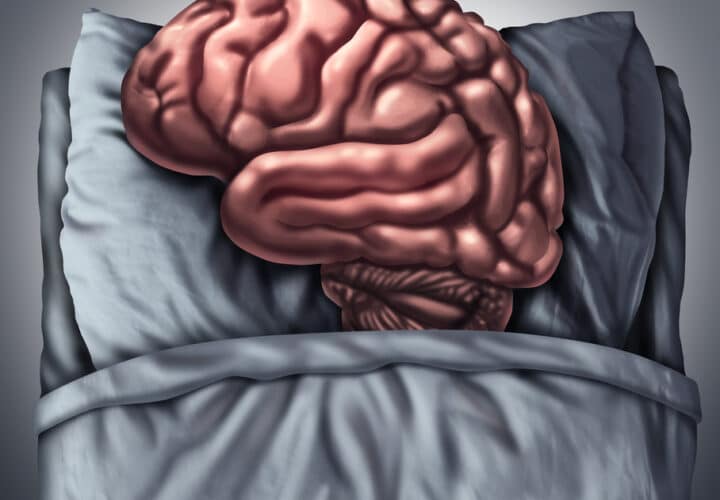One of the topics caregivers of an Alzheimer’s patient ask about most is sleep patterns. We know that Alzheimer’s can cause changes in the brain that lead to a disruption of their internal clock, which throws off sleep and often leads to behavior like rummaging in the middle of the night or sleeping through the day. Now, scientists have shown that a change in circadian rhythm actually occurs much earlier than previously thought, in people who have normal memory recall, but may actually be in the first stages of Alzheimer’s disease.
The study, published in the journal JAMA Neurology, may help diagnose what scientists call preclinical Alzheimer’s disease: showing signs of beta-amyloid plaques in the brain, the toxic protein associated with Alzheimer’s disease, but showing no symptoms like memory loss.
Scientists from the Knight Alzheimer’s Disease Research Center at Washington University in St Louis studied 189 cognitively normal adults who were an average age of 66. All were tested for levels of beta-amyloid via a PET scan or by measuring cerebrospinal fluid. Most of the 189 adults were normal sleepers without signs of amyloid. But of the 50 that did have abnormal test results for amyloid, all had significant disruptions in their internal clocks.
“It wasn’t that the people in the study were sleep-deprived,” said first author Erik S. Musiek, M.D., Ph.D., an assistant professor of neurology. “But their sleep tended to be fragmented. Sleeping for eight hours at night is very different from getting eight hours of sleep in one-hour increments during daytime naps.”
Researchers tracked sleep activity via a wearable device, much like a FitBit. They also had volunteers fill out a sleep diary each morning. Those who had spurts of activity and rest during the day and nighttime —like getting up to walk around, tossing and turning or taking naps during the day—were more likely to have amyloid build-up in their brains.
A separate study in mice was conducted by the same researchers that measured how circadian disruptions affect the development of amyloid plaques. To test the theory, the researchers disabled a gene that controls circadian rhythm.
“Over two months, mice with disrupted circadian rhythms developed considerably more amyloid plaques than mice with normal rhythms,” Musiek said. “The mice also had changes in the normal, daily rhythms of amyloid protein in the brain. It’s the first data demonstrating that the disruption of circadian rhythms could be accelerating the deposition of plaques.”
What the study can’t answer, though, like many observational studies, is whether circadian rhythm disruption actually causes Alzheimer’s, or if the disruption is an early symptom of the disease.
“At the very least, these disruptions in circadian rhythms may serve as a biomarker for preclinical disease,” said senior author, Yo-El Ju, MD. “We want to bring back these subjects in the future to learn more about whether their sleep and circadian rhythm problems lead to increased Alzheimer’s risk or whether the Alzheimer’s disease brain changes cause sleep/wake cycle and circadian problems.”



This worries me! I am a terrible sleeper and my mom has Alzheimer’s. She also has trouble sleeping.
Wow! I never thought that sleep could be linked to Alzheimer’s! By the way, thanks for sharing that study, it’s super interesting. Something to definitely watch out for.
Great information – although a bit scary. My sleep patterns have changed – staying up too late and napping during the day. I am certainly going to work on improving my nighttime sleep – going to bed earlier, keeping my room cool and not sleeping with video’s playing all night.